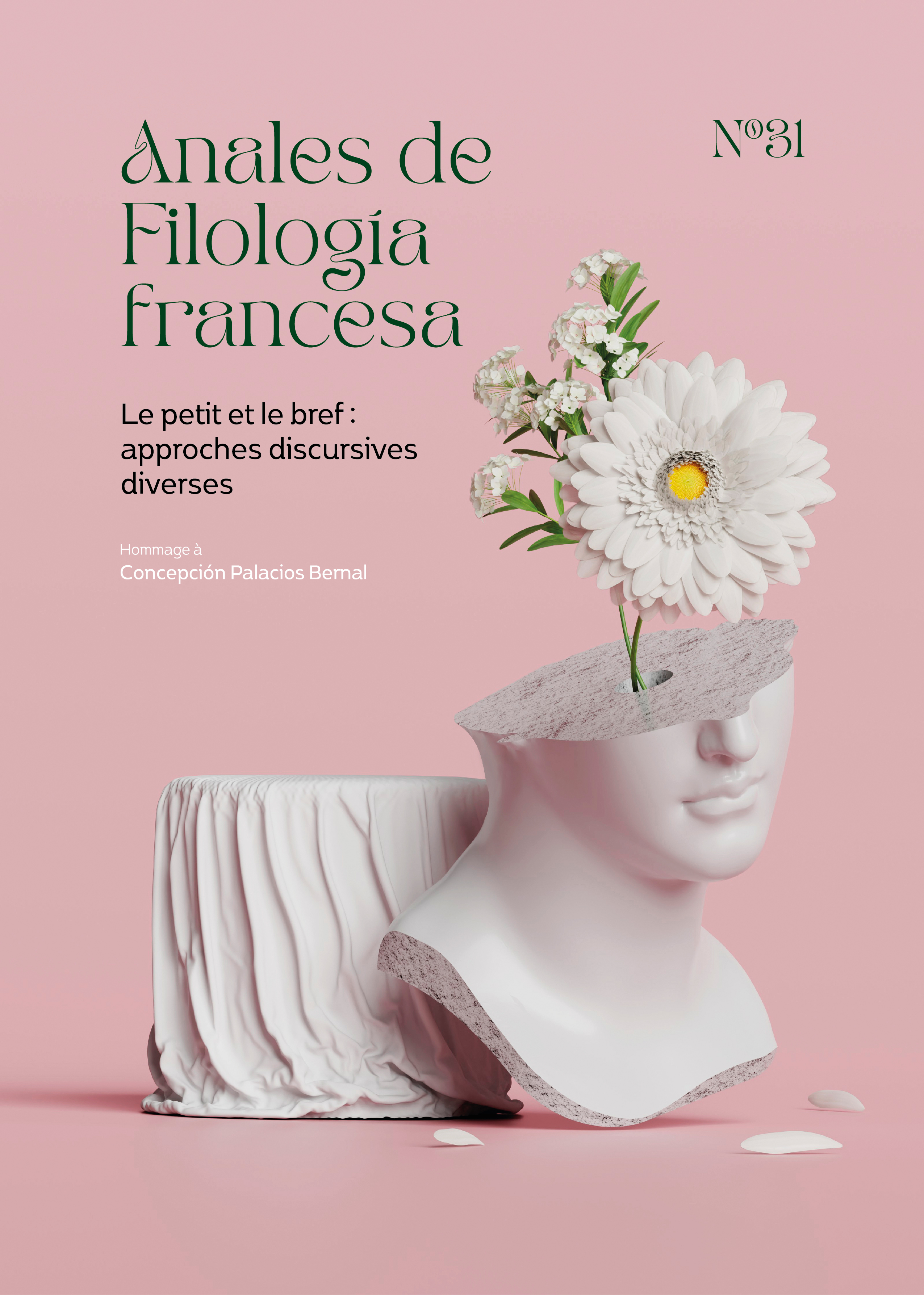Bois de fer (2022) by Mireille Gagné: the posthuman and ecocritical gaze of the tree-woman
Abstract
Mireille Gagné (Isle-aux-Grues, 1982), an eminent writer in the current Quebecois literary landscape, publishes Bois de fer in 2022, a collection of poetic fragments narrated by a female-tree subject. Gagné defines this work as an ecological and biting text that maintains hope until the end, aiming to generate new life and save it from extinction. In this article, we analyse how Gagné demonstrates a profound connection with the Earth to raise the reader's awareness of the systemic oppression exerted by humans towards other forms of life. Through a posthuman perspective, we explore how this earthly rootedness is based on a horizontal apprehension of existence that literature allows to enhance through an affectionate gaze and empathetic imagination towards the other. Similarly, from an ecocritical standpoint, we examine how the narrative poetic voice evokes the ecological illness of the planet caused by the current capitalist system, leading to destruction, while alerting the reader to the gravity of the situation with the hope of being able to reverse it in time.
Downloads
-
Abstract434
-
PDF (Français )516
References
BRAIDOTTI, Rosi. 2020. "Coneixement posthumà" in Subjectes posthumans. Barcelona, Arcadia, 63-83.
BULA CARABALLO, Germán. 2009. "Qué es la ecocrítica" in Revista Logos, nº 15, 63-73. <https://ciencia.lasalle.edu.co/lo/vol1/iss15/5/> [07/06/2023].
DELEUZE, Gilles & GUATTARI, Félix. 1980. Mille Plateaux: Capitalisme et Schizophrénie. Paris, Éditions de Minuit.
FLYS JUNQUERA, Carmen. 2013. " 'Las piedras me empezaron a hablar': una aplicación literaria de la filosofía ecofeminista" in Feminismo/s, nº 22, 89-112: <https://rua.ua.es/dspace/bitstream/10045/39794/1/Feminismos_22_07.pdf> [07/06/2023].
GAGNÉ, Mireille. 2020. Le lievre d'Amérique. Québec, La Peuplade.
GAGNÉ, Mireille. 2022. Bois de fer. Québec, La Peuplade.
LÓPEZ MÚJICA, Montserrat. 2007. "Aportación de una mirada ecocrítica a los estudios francófonos" in Çédille. Revista de Estudios Franceses, nº 3, 227-243: <https://www.redalyc.org/pdf/808/80800316.pdf> [07/06/2023].
MALAMUD, Randy. 2003. Poetic Animals and Animal Soul. New York, Palgrave Macmillan.
PLUMWOOD, Val. 2002. Environmental Culture. The Ecological Crisis of Reason. London,
Routledge.
PRÁDANOS, Luis Iñaki. 2017. "Ecocrítica ibérica contemporánea y nuevos materialismos" in Letras Hispanas, nº 13, 156-164: <https://gato-docs.its.txst.edu/jcr:2ef627b3-46cc-465d-9d1c-53a60c6135bc/2017-12-18%20Introduction.pdf> [07/06/2023].
PULEO, Alicia. 2008. "Libertad, igualdad, sostenibilidad. Por un ecofeminismo ilustrado" in Isegoría. Revista de Filosofía Moral y Política, nº 38, 39-59: <https://www.fuhem.es/media/cdv/file/biblioteca/Boletin_ECOS/10/Libertad_igualdad_sostenibilidad.pdf> [07/06/2023].
VELASCO SESMA, Angélica. (2017). "La ética animal ¿Una cuestión feminista?" in Ecología política, nº 54 (2017), 123-124: <https://dialnet.unirioja.es/servlet/articulo?codigo=6292636> [07/06/2023].
VELASCO SESMA, Angélica. (2019). "¿Quiénes son los sujetos dignos de consideración moral? Una aproximación al debate entre el holismo ecológico y el atomismo moral animalista en la filosofía ecofeminista" in Ecología Política, nº 58, 27-33: <https://dialnet.unirioja.es/servlet/articulo?codigo=7216667> [07/06/2023].
WARREN, Karen. 1996. Filosofías ecofeministas. Barcelona, Icaria.
Las obras que se publican en esta revista están sujetas a los siguientes términos:
1. El Servicio de Publicaciones de la Universidad de Murcia (la editorial) conserva los derechos patrimoniales (copyright) de las obras publicadas, y favorece y permite la reutilización de las mismas bajo la licencia de uso indicada en el punto 2.
2. Las obras se publican en la edición electrónica de la revista bajo una licencia Creative Commons Reconocimiento-NoComercial-SinObraDerivada 3.0 España (texto legal). Se pueden copiar, usar, difundir, transmitir y exponer públicamente, siempre que: i) se cite la autoría y la fuente original de su publicación (revista, editorial y URL de la obra); ii) no se usen para fines comerciales; iii) se mencione la existencia y especificaciones de esta licencia de uso.
3. Condiciones de auto-archivo. Se permite y se anima a los autores a difundir electrónicamente las versiones pre-print (versión antes de ser evaluada) y/o post-print (versión evaluada y aceptada para su publicación) de sus obras antes de su publicación, ya que favorece su circulación y difusión más temprana y con ello un posible aumento en su citación y alcance entre la comunidad académica. Color RoMEO: verde.










